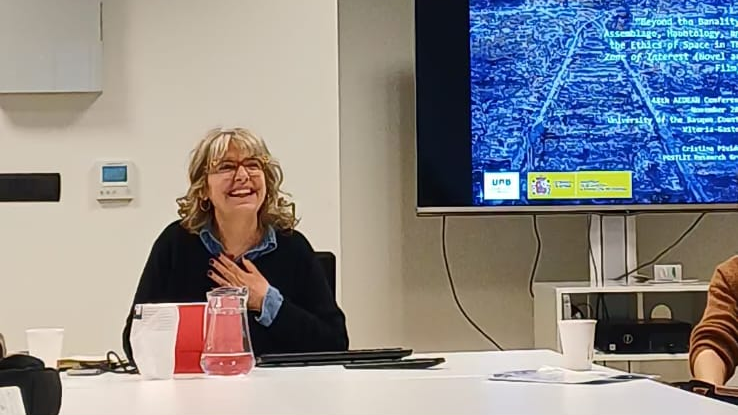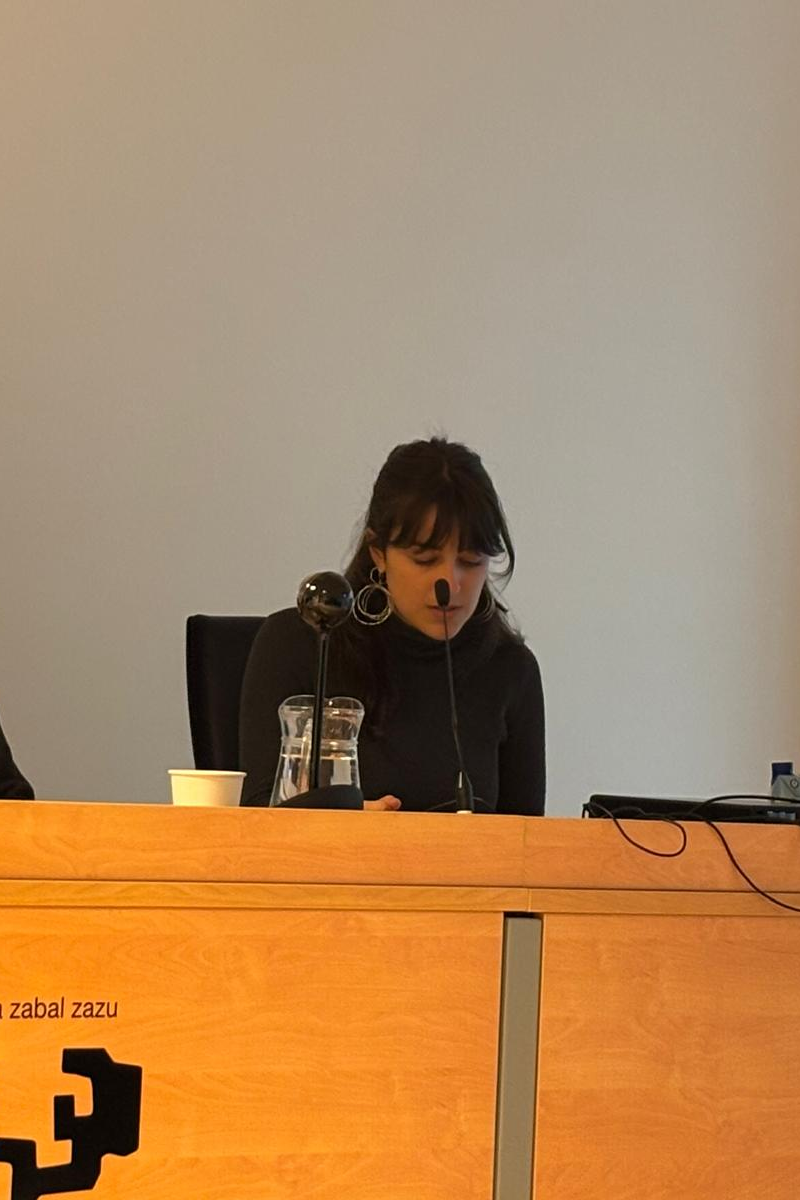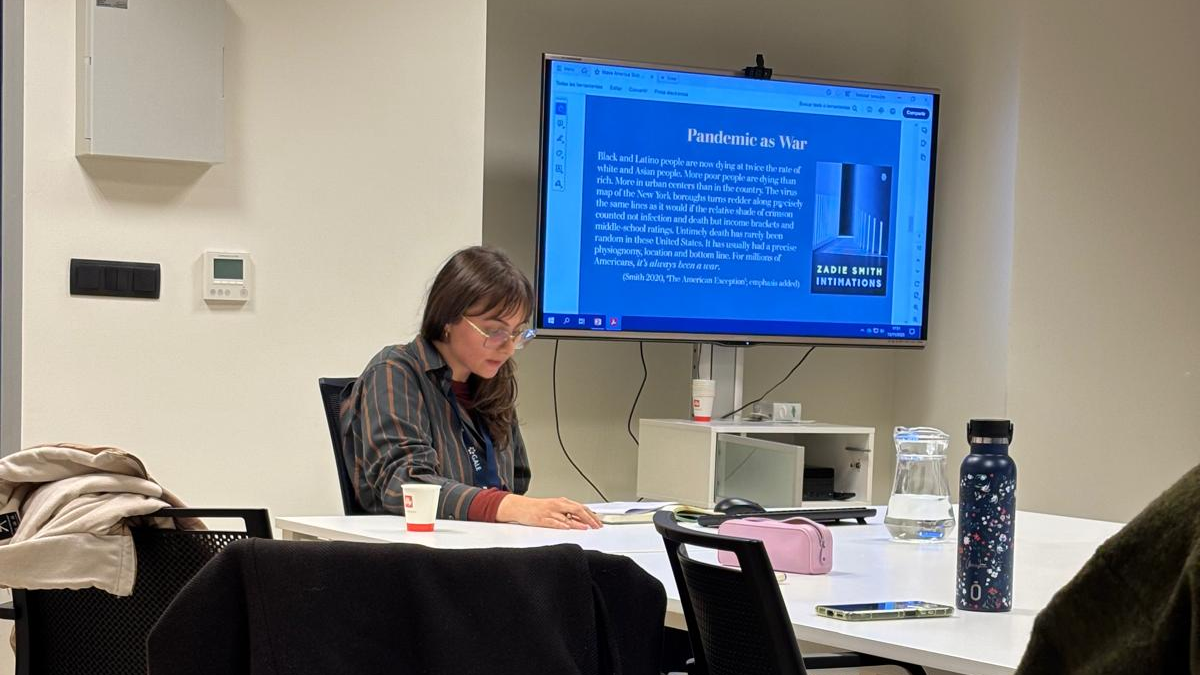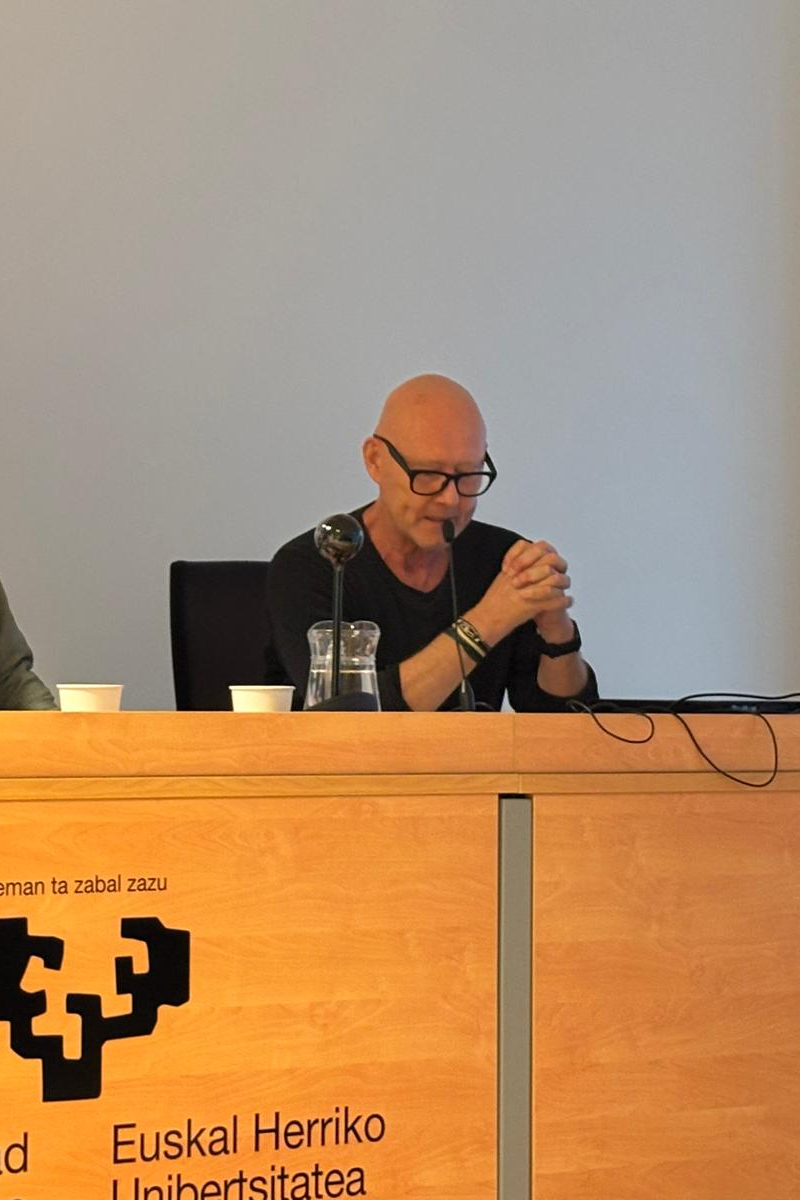From 12 to 14 November, the AEDEAN held its 48th conference at the Faculty of Arts of the University of the Basque Country. There, the Beyond Postmemory Research Group participated in roundtables and individual presentations in the Cultural Studies and Modern and Comparative Literature panels.
Chaired by Dr Cristina Pividori, Elvira Aguilera, Cristina Franco, Dr Sara Martín, Dr Nick Spengler, and Dr David Owen engaged in conversation about the intersection of war, trauma, and ecology through the lens of environmental postmemory in anglophone literature and culture. The six contributions examined a diverse range of literary and cultural texts, reimagining memory through bodies, landscapes, and temporalities damaged by war, and revealing the critical role that literature and culture play in bearing witness to trauma beyond the human.
Following this joint participation, Cristina Pividori, Elvira Aguilera, Cristina Franco, and David Owen presented their individual papers at the Modern and Contemporary Literature panel.
Cristina Pividori’s intervention titled “Beyond the Banality: Assemblage, Hauntology, and the Ethics of Space in The Zone of Interest (Novel and Film)” reinterprets Hannah Arendt’s notion of the “banality of evil” by shifting focus from individual morality to structural and spatial conditions of violence. Through Martin Amis’ novel The Zone of Interest and Jonathan Glazer’s film adaptation, the paper explores how atrocity is embedded in everyday routines, architecture, and ambient space. Building on Manuel DeLanda’s “assemblage theory” and Mark Fisher’s “hauntology,” Pividori argues that evil is not just psychological but materially and atmospherically distributed, calling for an ethical analysis rooted in space, form, and systemic complicity.

Elvira Aguilera presented “Matter and the (re)construction and mediation of memory and identity in Isabella Hammad’s novel Enter Ghost,” addressing Palestinian identity as one shaped by loss, displacement, and memory. Through the main character’s return to Haifa and her involvement in a local Hamlet production, the novel illustrates how material objects and spaces function as active agents in reconstructing postmemory. Taking Karen Barad’s agential realism and Alison Landsberg’s concept of prosthetic memory as her theoretical points of departure, Aguilera argues that both human and non-human matter participate in the affective reconfiguration of inherited trauma. In addition, the paper suggests that the lieux de mémoire (Pierre Nora) in the novel serve to reclaim and reshape Palestinian history and identity.

Cristina Franco focused on the chronological and social backdrop of the COVID-19 pandemic in her paper “Make America Sick Again: Dislodged Temporalities and Communities in Elizabeth Strout’s Lucy by the Sea.” In this intervention, Franco argued that Lucy by the Sea redefines conflict during the COVID-19 pandemic as an emotional and historical rupture. Based on Chakrabarty’s notion of “chronopolitics” and Heringman’s “deep time,” Franco argues that the novel explores fractured memory and disrupted ethical norms that collapse the linear understanding of time and societal cohesion.

Finally, David Owen delivered his paper “The Long Shadow of War: Militarised Authority in Austen’s Domestic Worlds.” Owen focused on Jane Austen’s Sense and Sensibility, Persuasion, and Northanger Abbey, and argued that these novels reveal how military authority permeates domestic and emotional life, despite the absence of battlefield renditions. Drawing on Judith Butler’s theorisation of precarity (Frames of War, 2009) and Mary Fravert’s concept of “war at a distance,” Owen argues that military characters and logic permeate the private sphere, shaping gendered interactions, emotional expectations, and familial power.
